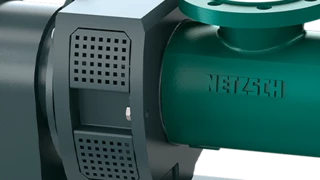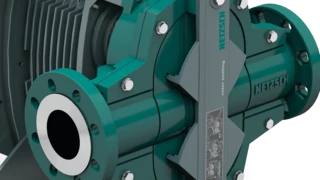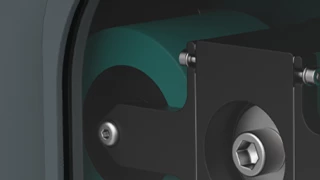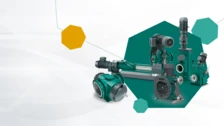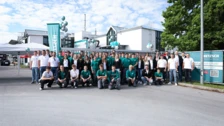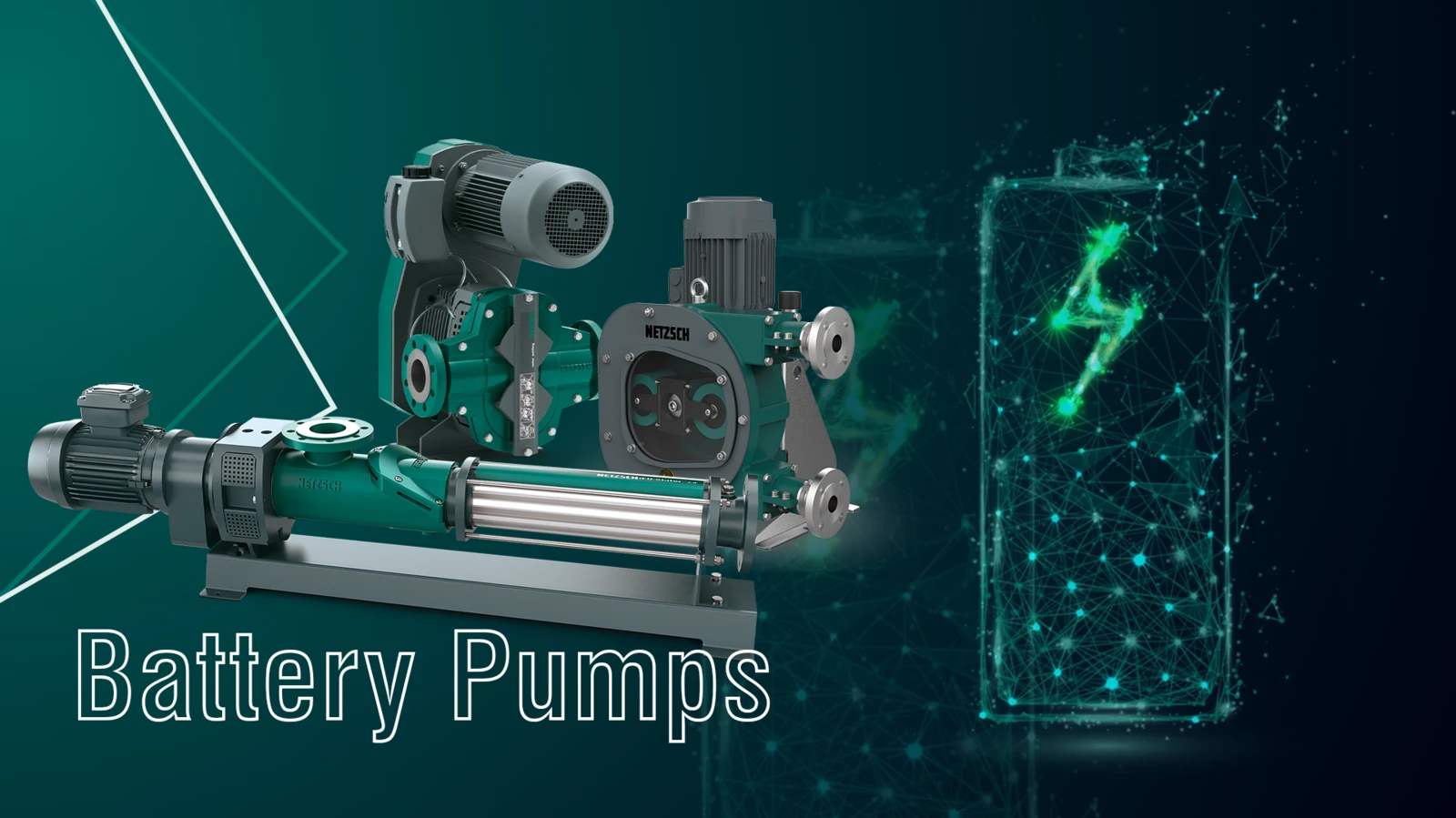
18.07.2023
Nessas aplicações, você se beneficia das Bombas de Bateria NETZSCH
As aplicações de bombas no processo de baterias não poderiam ser mais diferentes: Seja na mineração, na extração de matérias-primas, na mistura, na moagem úmida ou no processo de desaglomeração, bem como no revestimento e na reciclagem de baterias - a NETZSCH Pumps & Systems tem a solução certa para o seu problema de fabricação de baterias.
The global specialist in handling complex media combines innovative strength and decades of experience with positive displacement pumps. We show you how to benefit from NETZSCH in battery production. All process steps using battery pumps at a glance:
- Raw material extraction
- Mixing and wet grinding process
- Wet grinding and de-clumping process
- Blending process
- Coating process
- Recycling of batteries

Atendimento Personalizado
Como se beneficiar na extração de matérias-primas
Due to the increasing use of electric vehicles, the demand for batteries is also growing worldwide. In order to be able to meet this demand in the future, powerful and efficient pumps are required for the extraction of raw materials. With more than 70 years of experience with positive displacement pumps, NETZSCH is the right partner. Standard batteries consist of anodes, cathodes, separators and electrolytes. The raw materials required for this include lithium, nickel and manganese. Pumps are essential for the efficient transport of the extracted raw materials. As a global specialist in conveying complex media, NETZSCH offers powerful and reliable battery pumps. In addition to the tried and tested technology of the NEMO® progressing cavity pumps, these include the TORNADO® rotary lobe pumps as well as the PERIPRO® peristaltic pumps. While the progressing cavity pump allows you to convey even viscous media such as lithium slurry at low operating speeds, the rotary lobe or peristaltic pumps, for example, are suitable for transporting viscous slurries and liquids with a high solids content. By selecting the optimal battery pump, you reduce wear and tear and thus save costs. As your partner, we will work with you to find the optimal pump solution for raw material extraction from our broad product portfolio.
Vantagens no processo de mistura e moagem úmida
Following the raw material extraction, the process step of mixing and wet grinding is next. Battery pumps are also crucial during mixing and wet grinding. This process treats and recycles the sludge from the electrolytes that accumulates during battery production. During the wet grinding of the electrolyte sludge, the innovative design of the NEMO® progressing cavity pumps in FSIP® design and the PERIPRO® peristaltic pumps in industrial design ensures that the mixture is conveyed through the grinding process efficiently. These pumps provide the abrasive sludge to be discharged into a container where it is ground. The grinding process reduces the sludge to smaller particles that can be more easily separated from the metals they contain. Thanks to their high abrasion resistance, the robust battery pumps from NETZSCH offer a longer service life than other technologies. In addition, the progressing cavity pumps, as well as the peristaltic pumps, are characterised by their compact and service-friendly design. Thanks to the FSIP® design of the progressing cavity pumps, you can save up to 66 percent of maintenance time, and the PERIPRO® peristaltic pumps have only one wearing part anyway - the hose. This reduces downtime and service times. At the same time, you save costs.
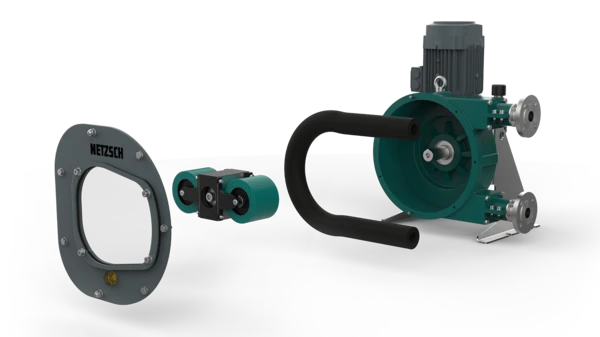
Bombas para o processo de moagem úmida e desaglomeração
Pumps are essential for wet grinding and de-clumping in battery manufacturing. During the production process of batteries, especially lithium-ion batteries, electrolyte sludge, consisting of metals and other particles, is produced. To recover the metals and reduce the environmental impact, treating and recycling this sludge is necessary. Depending on the individual application, we offer various pump technologies that efficiently convey the sludge through the wet grinding process. Suitable pumps include our NEMO® BY progressing cavity pump in industrial design, the PERIPRO® hose pump industrial version and the TORNADO® T.Envi® rotary lobe pump, depending on the type of medium and the specific requirements. These battery pumps ensure continuous delivery of the sludge into the tank where it is ground. By using the battery pumps, you preventively counteract the undesired clumping of the sludge.
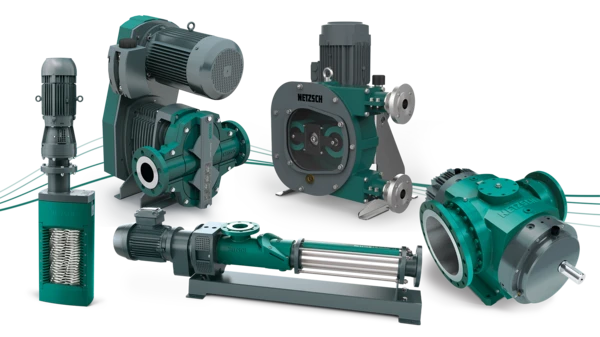
Altas taxas de fluxo no processo de mistura
Battery pumps are also used in the electrolyte blending process. In producing lithium-ion batteries, it is crucial to precisely dose and homogeneously mix the electrolytes, such as lithium salts in liquid or polymer form, to ensure consistent and effective battery performance. In this process, a battery pump is indispensable to transport and dose the electrolytes from containers to mixing tanks. Depending on the properties of the slurry, we offer rotary lobe pumps, peristaltic pumps and progressing cavity pumps which guarantee high flow rates and maximum dosing accuracy. NETZSCH battery pumps also persuade through their choice of materials and construction, which offers you a high level of corrosion resistance and, thus, a long service life. This sustainably reduces your maintenance and servicing costs and thus also lowers production costs.
A mais alta precisão de dosagem no processo de revestimento
The final step in battery manufacturing is the coating process. This process usually involves doctor blade coating or wide slot nozzle coating to process the battery slurry. The right pump system is crucial in battery production lines. It pumps different types of adhesives, battery fluids and other media. Various primary raw materials are pumped into the agitator tank and blended at high speed. The NEMO® progressing cavity pump from NETZSCH is ideally suited for coating. These battery pumps enable a continuous and pulsation-free feed of even highly viscous and concentrated slurries to the coating system. In this way, you achieve a thin and uniform coating thickness. Since the battery pump conveys and meters the medium with minimal pulsation and maximum precision, it meets even the highest coating process requirements in battery production.

Pumps for recycling and reprocessing batteries
The demand for lithium-ion batteries, especially for electric vehicles, continuously increases. According to a Statista study from 2020, battery capacities of only 215 gigawatt hours (GWh) were needed, while by 2025, it is expected to be 680 GWh. As the demand for batteries grows, the need to recycle and reprocess old batteries also increases. At NETZSCH, we offer various displacement pumps that can help you recycle old batteries. Our experts will work closely with you to select the ideal battery pump for recycling old batteries.
From raw material extraction in the mining industry to the finished battery in retail, the quality of the batteries can only be ensured with the right pump for the corresponding application. Depending on the individual application, the experts at NETZSCH can draw on three different battery pumps.
